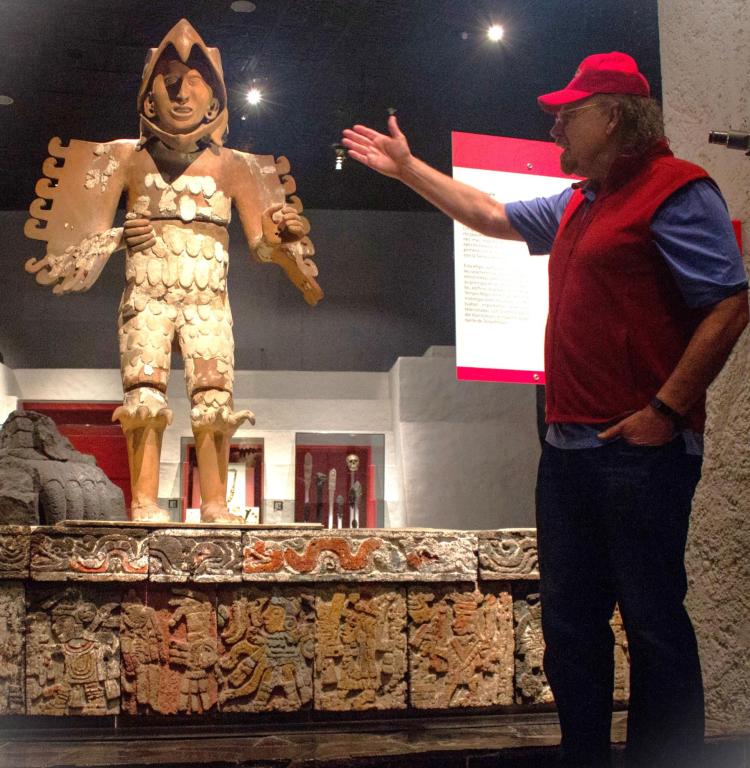
Davíd Carrasco (Neil L. Rudenstine Professor of the Study of Latin America at Harvard University) will be returning to CU to teach a summer course “Native American and Indigenous Religious Traditions: Shamans, Cities and Ceremonies” in the Religious Studies Department. Carrasco is a Mexican American historian of religions with particular interest in Mesoamerican ceremonial centers, shamanism and rites of renewal. His studies with historians of religions at the University of Chicago inspired him to work on the question, "where is your sacred place," and the challenges of postcolonial ethnography and theory, and on the practices and symbolic nature of ritual violence in comparative perspective. Working with Mexican archaeologists, he has carried out research in the excavations and archives associated with the sites of Teotihuacan and Mexico-Tenochtitlan resulting in Religions of Mesoamerica, City of Sacrifice, and Quetzalcoatl and the Irony of Empire.
He is co-producer of the film Alambrista: The Director's Cut, which puts a human face on the life and struggles of undocumented Mexican farm workers in the United States, and he edited Alambrista and the U.S.-Mexico Border: Film, Music, and Stories of Undocumented Immigrants (University of New Mexico Press). Carrasco appeared in three recent films, the PBS series “Native America” plus ”Toni Morrison: The Pieces I Am” and one about the sportscaster “Gus Johnson: Back to School”.
Course summary below:
Native American and Indigenous Religious Traditions: Shamans, Cities and Ceremonies
RLST 2700 / ETHN 2703 | 3.0
In Person - Term B
July 9 - August 9
This course studies the religious lifeways of diverse Indigenous peoples in North America, including Mesoamerica. The course considers the cosmovisions, ceremonies and empires of the Aztecs, Maya, Apsáalooke, Cheyenne, Lakota among others. We explore ceremonies for healing, movements of social resistance to colonialism, caretaking for ecology and ancestors in comparative perspective. We read memoirs, novels, ethnographies and testimonies in relation to anthropology and religious studies approaches.
Enroll Today! Summer Session Info
